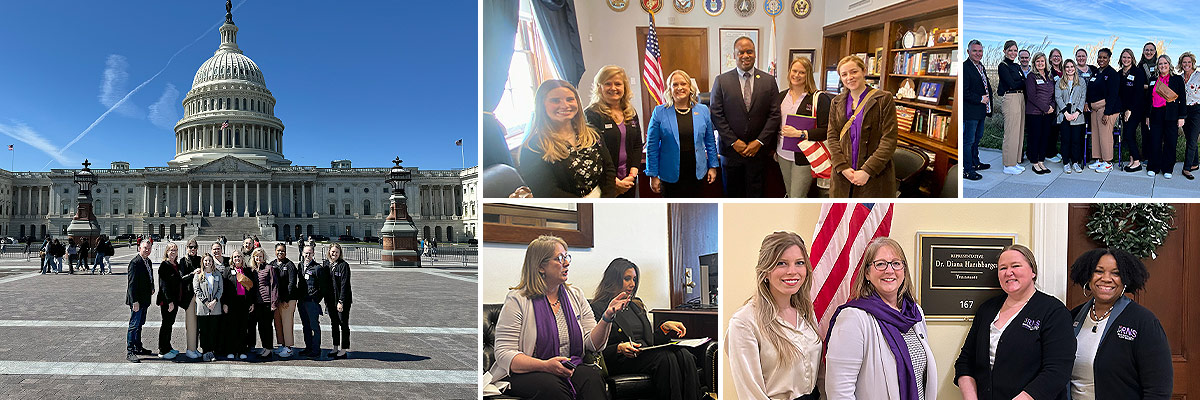On March 19th and March 20th, the RNS Advocacy Task Force visited Washington, D.C. to engage with policymakers and other stakeholders on issues impacting rheumatology nurses and advance practice providers (APPs). On the first day, we heard from Shanna Hartman, who is a registered nurse by background and currently works on health informatics within the Centers for Medicare and Medicaid Services (CMS). She spoke to the group about CMS’ efforts related to prior authorization and offered to stay engaged with RNS as the agency expands its prior authorization reform efforts to include prescription drugs. We also heard from representatives of the Patient-Centered Outcomes Research Institute (PCORI), who provided an overview of the kinds of research PCORI funds and walked us through the funding application process and opportunities. Finally, we heard from the Executive Director of the Biosimilars Forum about the challenges around biosimilars uptake, which has been lower than expected when the biosimilars approval pathway was first created.

The following day, we visited Capitol Hill for visits with our Senators’ and Representatives’ offices. The Advocacy Task Force members represented a total of eight states, so we covered a lot of ground, visiting twenty-two congressional offices in a day. These visits were split evenly between the Senate and the House. During our meetings with Hill offices, we discussed three pieces of legislation. First, we urged Members to cosponsor the Safe Step Act, which would create critical patient protections related to the use of step therapy protocols in employer health plans. Second, we advocated the HELP Copays Act, which would prohibit the use of copay accumulators in exchange plans. And finally, we raised the issue of workforce development and asked Members to support and enact the Train More Nurses Act, which would require a comprehensive study of existing nursing workforce grant programs and make recommendations for future investments.
Overall, the reception to these issues was positive. Members of Congress understand the need for reform of utilization management protocols in federally regulated plans, which is the result of years of dedicated advocacy by patients and providers alike. Additionally, Members appreciate the severity of the healthcare workforce shortage, particularly after this issue was brought to the forefront as a result of the COVID pandemic.
Although our Hill Day is an annual occurrence, RNS engages in advocacy on an ongoing basis throughout the year as well. In the coming year, we will likely lean into workforce development policy initiatives. This issue is not only of high concern to lawmakers, it is also an area where targeted reforms such as faculty pay grants can make a meaningful difference.
When it comes to the “big picture,” we were on the Hill just as Congress was wrapping up its work on the latest government funding bill. Later that week, both chambers did enact funding for the remainder of the fiscal year, in time to avert a government shutdown.
As a reminder, if you’d like to become more involved in our advocacy work, please drop us a line: advocacy@rnsnurse.org.
